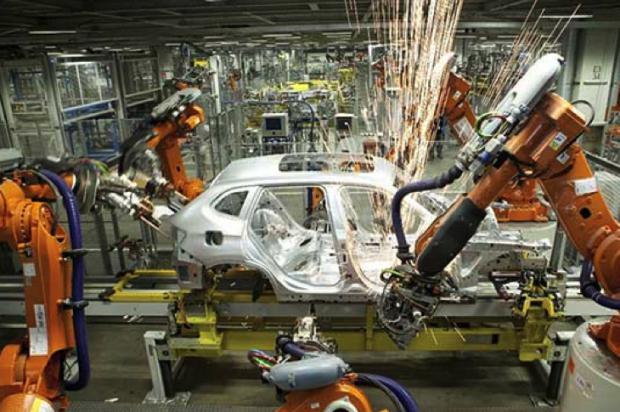
Breaking News
 Is The Government Coming For Our Seeds?
Is The Government Coming For Our Seeds?
 Looming ice storm could be among worst on record
Looming ice storm could be among worst on record
 The walls are actually closing in on Ilhan Omar and her husband…
The walls are actually closing in on Ilhan Omar and her husband…
 Tesla and XAI's Digital Agent Strategy
Tesla and XAI's Digital Agent Strategy
Top Tech News
 The day of the tactical laser weapon arrives
The day of the tactical laser weapon arrives
 'ELITE': The Palantir App ICE Uses to Find Neighborhoods to Raid
'ELITE': The Palantir App ICE Uses to Find Neighborhoods to Raid
 Solar Just Took a Huge Leap Forward!- CallSun 215 Anti Shade Panel
Solar Just Took a Huge Leap Forward!- CallSun 215 Anti Shade Panel
 XAI Grok 4.20 and OpenAI GPT 5.2 Are Solving Significant Previously Unsolved Math Proofs
XAI Grok 4.20 and OpenAI GPT 5.2 Are Solving Significant Previously Unsolved Math Proofs
 Watch: World's fastest drone hits 408 mph to reclaim speed record
Watch: World's fastest drone hits 408 mph to reclaim speed record
 Ukrainian robot soldier holds off Russian forces by itself in six-week battle
Ukrainian robot soldier holds off Russian forces by itself in six-week battle
 NASA announces strongest evidence yet for ancient life on Mars
NASA announces strongest evidence yet for ancient life on Mars
 Caltech has successfully demonstrated wireless energy transfer...
Caltech has successfully demonstrated wireless energy transfer...
 The TZLA Plasma Files: The Secret Health Sovereignty Tech That Uncle Trump And The CIA Tried To Bury
The TZLA Plasma Files: The Secret Health Sovereignty Tech That Uncle Trump And The CIA Tried To Bury
Chinese Factory Replaces 90% Of Human Workers With Robots, Sees 250% Production Increase

One of China's first unmanned factories in the city of Dongguan recently replaced 590 of its workers with robots and the results were astounding. While the factory used to be run by 650 employees, only 60 of those people still work at the factory and their primary job is to make sure the machines are running properly, not working on manufacturing.
The Changying Precision Technology Company focuses on the production of mobile phones and uses automated production lines. The robotic arms produce certain parts of the mobile phones at each station and the factory even makes use of autonomous transport trucks.
Though 60 is a shocking amount of people to be running and monitoring a whole factory, the trial for the robots is going so well that the general manager, Luo Weiqiang, said that the number of human employees may even drop to 20 someday.
Since the shift to robots, pieces per person per month has risen from 8,000 to 21,000—a whopping 250% increase. While some may argue that quality of the product will decrease with the use of robots, this doesn't appear to be the case either. The number of product defects has decreased from 25% to just 5%.

 Nano Nuclear Enters The Asian Market
Nano Nuclear Enters The Asian Market


